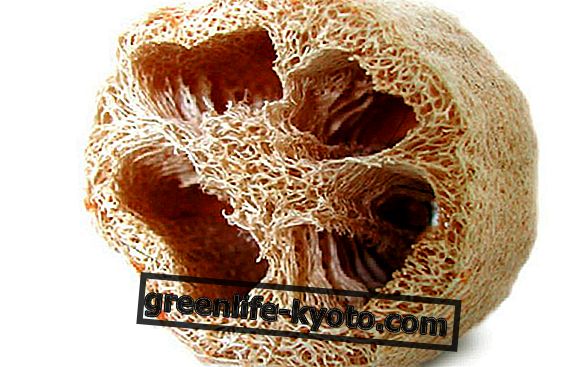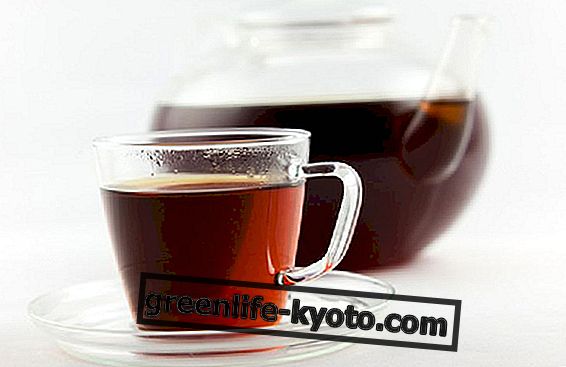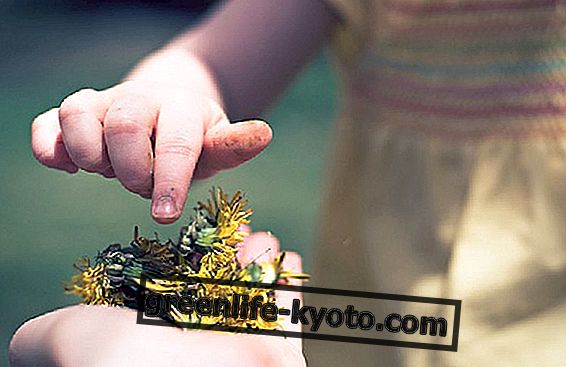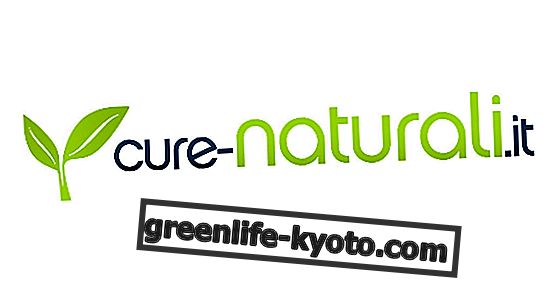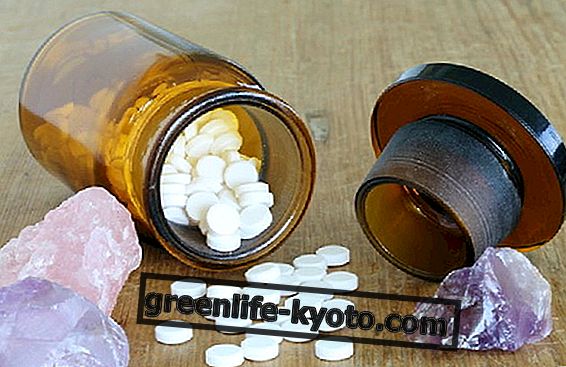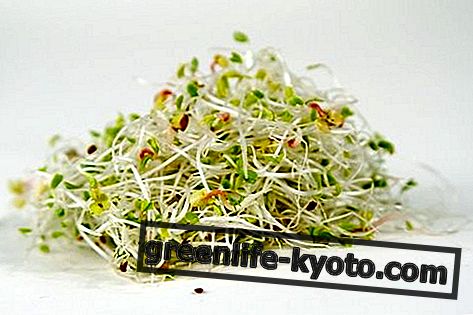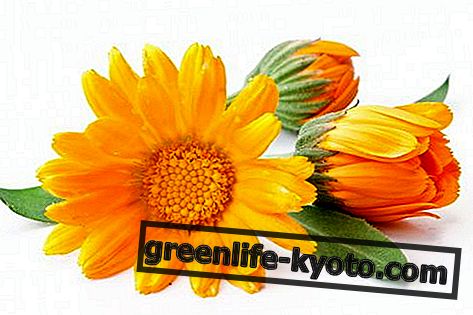Sinusitis is defined as an inflammatory process of the mucous membranes of the paranasal sinuses, often accompanied by a primary or secondary infectious process. The paranasal sinuses have the function of protecting the brain from possible traumas, filtering the inhaled air and protecting, through the secretion of mucus, from infectious agents or irritating substances . We see the various herbal remedies to treat it.
>
>
>
Grapefruit seed among the herbal remedies for sinusitis

For sinusitis in herbal medicine officinal plants are used which act as decongestants and anti-inflammatories of the mucous membranes of the paranasal sinuses; others with antibiotic and antibacterial properties, when this disorder is the result of an infection. Even essential oils are used effectively, especially balsamic oils, because they are able to dissolve the mucus and promote its elimination .
In the case of sinusitis, the inflamed mucosa increases its volume, causing a narrowing of the communication hosts between the paranasal sinuses and nasal cavities. This gives rise to a stagnation of mucus inside the sinuses. If the mucus drainage is hindered, the microorganisms proliferate inside the sinuses, which become an ideal site for the growth of bacteria, coming from the nasal cavities or from the oropharyngeal cavity.
Acute sinusitis causes pain and swelling at the affected sinuses, most often the frontal and maxillary sinuses. The pain, often localized in correspondence of the supraciliary arches or of the cheekbones can be accompanied by headache, fever and leakage of very dense secretions from the nose. Chronic sinusitis, on the other hand, is manifested by obstruction, congestion and nasal drip .
In general, the symptoms of sinusitis are pain and a sense of pressure on the face, in different areas depending on the paranasal sinus involved. The non-specific symptoms of inflammation or of an infection can then be accompanied (headache, fever, rhinorrhea with yellowish-green mucus, fat cough, toothache). Finally, the presence of this disorder, sensitizing the upper areas, makes people susceptible to colds or rhinitis of an allergic nature .
Medicinal plants for sinusitis
- Grapefruit seeds : the research carried out on this extract revealed an unexpectedly broad spectrum of ant-infective action, capable of neutralizing not only viruses and bacteria, but also yeasts, other types of fungi and parasites . Grapefruit seeds contain flavonoids with marked antiviral, antibacterial and antifungal activity. The extract is obtained from the seeds and dehydrated pulp. The effectiveness of the extract has been recognized by an increasing number of natural doctors, who use it mainly in the treatment of colds, fever and colds.
- Immunostimulant plants : they perform an action that proves to be really fundamental when preparing to face the states of stress and psycho-physical saurium, seasonal changes or the first symptoms of colds are felt . In winter, in fact, the aggression of the unfavorable weather conditions create the ideal conditions for the attack of viruses and bacteria that cause the main flu forms such as colds, coughs and fever and sinusitis. However, even the rest of the year, particular lifestyles, environmental pollution, too intense work commitments, an unbalanced diet, insufficient hours of sleep, stress and depression, can cause the lowering of our natural defenses. For this reason, the use of immunostimulating plants can help to strengthen the immune system and protect the entire body from disorders such as herpes, dermatitis, urinary tract infections (such as cystitis and candida) and the respiratory tract. Echinacea, astragalus, uncaria tomentosa and aloe vera belong to this category.
- Plantain : numerous Greek and Latin scholars (Dioscorides, recommended it for dysentery, while Pliny called it "magic herb" for its many healing properties) have handed down news about its medicinal use. Recent studies have confirmed that the leaves contain iridoid glycosides, of which the most significant is aucubine, flavonoids (luteolin), mucilages, tannins, pectins, salicylic acid, mineral salts ( especially zinc and potassium, vitamins A, C, and K). The plant has bechic, expectorant, antibacterial, anti-inflammatory and astringent properties and is indicated for inflammation of the throat and respiratory tract in general, such as cough, bronchial catarrh, chronic bronchitis, hay fever, sinusitis, and mucosal inflammation of the mouth and the urogenital system.
The buds
- Ribes nigrum gems (black currant bud-derived), stimulates the adrenal glands to produce cortisone with anti-inflammatory and anti- allergic action . It is therefore indicated in all inflammatory states and in allergic cases whatever their clinical appearance: rhinitis, sinusitis, bronchitis, asme, gastritis, migraines, urticaria, Quincke's edema, allergic rheumatism and sun allergy, conjunctivitis and asthma due to allergy . Black currants can have some side effects, such as allergies and high blood pressure. Always consult a doctor before taking it.
- Rosa Canina: gems (gemmoderivato of Rosa canina), it has immunomodulating properties, that is it regulates the immune response of the organism, giving the preparation an effective action against many forms of infections. In particular, its intake improves the immune response at the respiratory level in those with an allergic tendency and in children . The anti-inflammatory property finds an important therapeutic use in acute phlogosis which involves alterations of the nasal mucosa, of the eyes and of the first airways with consequent production of phlegm . For these properties, it represents an excellent remedy in the prevention of allergies and in the treatment of sinusitis, rhinitis, conjunctivitis of infectious origin.
- Alnus glutinosa : gems ( gemmoderivato of the Black alder ), is active in all inflammatory syndromes characterized by mucus production, whatever the compromised tissue. Therefore it is indicated as a decongestant in the inflammatory and suppurative processes of the nasal mucosa and in the chronic forms of rhinitis and sinusitis .
- Carpinus betulus : gems (gemmoderivato del Carpino), is used in respiratory syndromes, in chronic and spasmodic rhino-pharyngitis, in tracheitis and in tracheobronchitis and sinusitis . It has an anti-inflammatory, anti- catarrhal, sedative effect on coughing and healing of mucous membranes affected by inflammatory processes, and reduces spasms of the upper respiratory tract. It is indicated in chronic and spasmodic rhino-pharyngitis, tracheitis and tracheobronchitis.
Homeopathic remedies for sinusitis: when and how to use them?
Essential oils useful for sinusitis
Among the applications of essential oils, the most suitable one in case of sinusitis is the practice of s uffumig i. It is a particularly useful system in the case of colds, sinusitis, flu, diseases of the upper respiratory tract with cough and phlegm, bronchitis. Pour boiling water into a basin and add 5-8 drops of one or more oils with antiseptic, fluidifying and expectorant action (the oil drops can be dissolved in a teaspoon of alcohol first). The volatile molecules are released in the air together with the water vapor and can thus be inhaled to reach the respiratory tract. The most effective essential oils for treating this disorder are balsamic, with a top note.
- Eucalyptus essential oil: decongestant it fades and calms the irritation of the nasal mucous membranes, thins the phlegm on which it has an expectorant action, that is it facilitates the expulsion of the mucus. In aromatherapy it is used for inhalations, in case of colds, headache caused by sinusitis, rhinitis and cough.
- Mint essential oil : it performs an antiseptic and antipyretic action which is beneficial in case of colds and flu diseases; clear the airways, helping you breathe better in case of asthma and sinusitis, cold and flu
- Essential oil of Camphor: in case of cough and cold and sinusitis, if inhaled or rubbed on the frontre it favors the decongestion of the nasal mucole and the fluidization of the phlegm.
